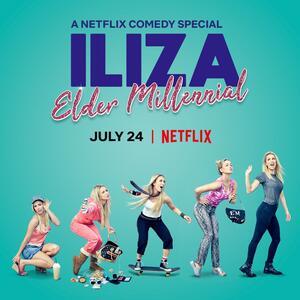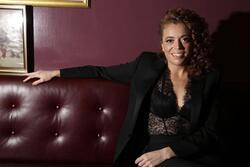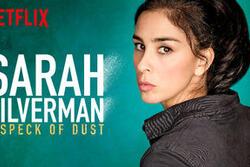Respect Your Elder (Millennial)
I love writing about female comedians. I’ve written about Sarah Silverman, Michelle Wolf (twice), Ilana Glazer and Abbi Jacobson of Broad City, and Midge Maisel. That last one? She’s not even real! She’s a fictional stand-up comedian from the Amazon series, The Marvelous Mrs. Maisel.
And that’s just women I’ve written about; I’ve watched countless other comedy specials from outstanding comedians like Ali Wong, Gina Yashere, Jen Kirkman, Michelle Buteau, Cristela Alonzo, Jessica Williams and Phoebe Robinson of 2 Dope Queens, Christina P, and more.
The point is, I love me some female comics. They’re exactly the strong, funny, opinionated, uppity women I want to hear from on a regular basis. As a strong, funny (I think), opinionated, uppity woman myself, I very much identify with these comics and others like them, and often see my own experience reflected in their work.
Given the current political climate and the especially tenuous position that women currently hold in our society, I’m not only interested in jokes. More than anything, I’m hungry for these women’s opinions and insights––on Donald Trump, childbirth, mothering, and everything in between. For me, comedy is a way I can process and consider the world around me without falling into a total pit of despair. (Pit of Despair––name of my sex tape. Brooklyn 99 for the win!)
A couple of years ago, I discovered comedian Iliza Shlesinger, and was immediately drawn to her hilarious and very much female-focused brand of comedy. Iliza hustles. Among many other things, she was the first woman and also the youngest person ever to win Last Comic Standing; she’s written a book; she has four hour-long Netflix specials, including her newest special, Elder Millennial; and, she has her own late-night talk show, Truth and Iliza. Oh, and she’s Jewish!
Having watched all of Iliza’s specials, read her book, and watched much of her talk show, there are any number of aspects of her comedy I could talk about. I’d like to focus on what I see as her evolution as a feminist, paired with the rising trend of comedy specials that challenge our perceptions of what comedy can be. Notable examples include Neal Brennan’s 3 Mics and Hannah Gadsby’s Nanette.
In Iliza’s earlier specials, I often felt like a lot of her jokes about women didn’t really apply to me. They’d start with the phrase, “all girls have done this…,” and sometimes that left me feeling left out, and slightly put off. To be honest, any statement that starts with “all girls” is going to exclude someone. Also, can we use “women” when talking about adult women, please?
Having watched her many specials, it’s clear to me that Iliza has done some thinking about this––thus living up to the wisdom-giving connotation of the “elder” part of her special’s title.
In Elder Millennial, Iliza begins to seriously explore and comment on some of the underlying social causes of these “all girls…” statements. For instance, when joking about the sometimes extreme lengths that women go to in order to attract men, she delves into how this stems from the “princesses getting saved” narrative that’s drilled into us as young girls.
She talks about why women hitting on men is considered so taboo. “A big part of the reason that women don’t hit on men is because women aren’t seen as equal to men,” Iliza explains in her act. “Therefore when we step out of a traditional feminine role and do something alpha and he rejects us, it hurts that much more.” Here she is, showing how a fairly trivial social phenomenon is emblematic of much larger social issues.
Also in this special, Iliza talks about how women often avoid telling men they’re dating that they want children (eventually, one day) for fear of scaring them off.
She then pauses and says, “If you’re the woman who doesn’t want kids, you’re still a woman, this joke just isn’t about you…” and then, jokingly, “Wait your turn.” While this may seem small, I felt validated in this moment––not necessarily because of the specific content, but simply because it acknowledged that women aren’t all the same. I felt seen by a comedian I really admire and respect, and appreciated her verbal acknowledgement that not all women share the same experiences and desires. To me, the inclusion of this joking caveat is a feminist act.
As a big Iliza fan and also a big feminist, it’s been both interesting and satisfying to watch her feminist development in her comedy and writing. It’s a good reminder to all of us that we can always work on becoming more enlightened, more inclusive, and more progressive. I don’t think that Iliza is done growing; in particular, I think she could do more to address and acknowledge the differing experiences of women of color––but still––I appreciate the progress she’s made, and have no doubt that she’ll continue to grow.
I also appreciate that Iliza is increasingly using her platform to point out serious issues and challenges facing women. In the midst of sharing some more hard-hitting content in her third Netflix special, Confirmed Kills, she joked about the special being a TED Talk. This blend of humor and insight is especially present in Elder Millennial, and I’m here for it!







